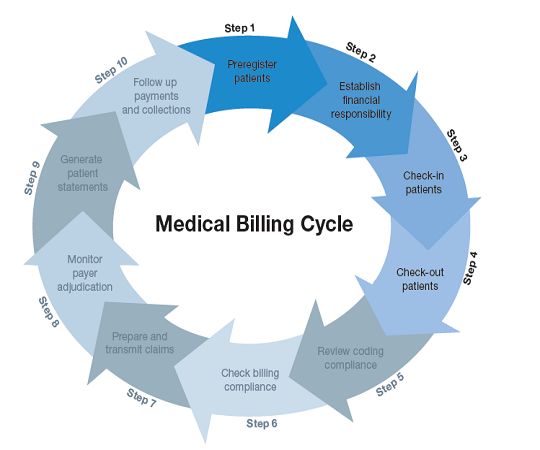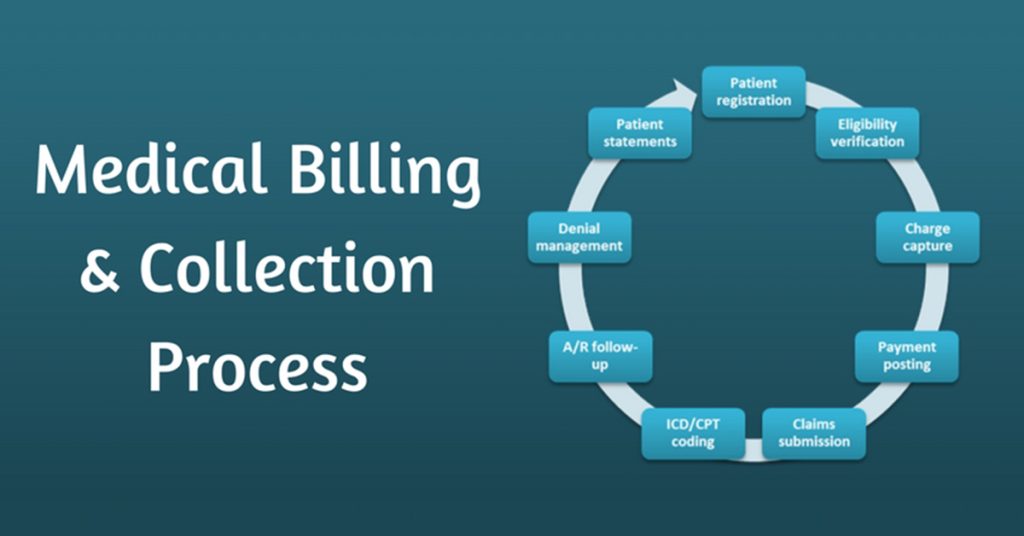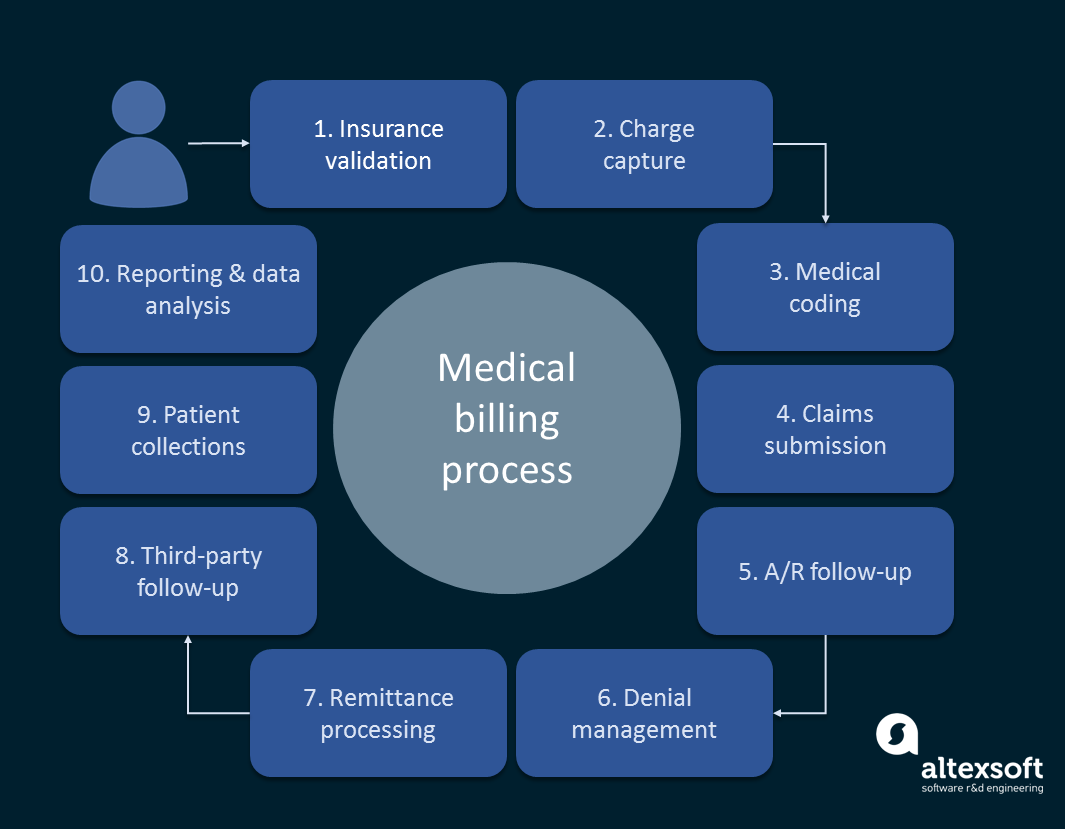In this article, we will explore the various components that make up the world of medical billing. Whether you are already working in the healthcare industry or considering a career in medical billing, understanding the ins and outs of this field is crucial. From navigating insurance claims to accurately coding procedures, there is a lot to learn. By delving into the intricacies of medical billing, you will gain a deeper understanding of how this process works and the importance it holds in providing quality patient care.
If you are curious to know more about the intricate world of medical billing and want to gain a comprehensive understanding of the essential tasks involved, this article is for you. We will dive into the complex world of insurance verification, medical coding, claim submission, and reimbursement. By exploring each of these aspects in detail, you will be equipped with the knowledge and skills needed to excel in this profession. Stay tuned to discover the fascinating world of medical billing and all that it entails.

Understanding Medical Billing
Medical billing is a complex and integral part of the healthcare industry. It involves the process of submitting and following up on claims with health insurance companies in order to receive payment for the services provided to patients. Medical billing professionals play a crucial role in ensuring that healthcare providers are reimbursed accurately and in a timely manner. In this article, we will explore the definition, importance, and role of medical billing in healthcare, as well as the various processes and systems involved in this field.
Definition of Medical Billing
Medical billing can be defined as the process of translating healthcare services provided to patients into a billing claim that can be submitted to insurance companies for reimbursement. It includes entering patient information, verifying insurance coverage, assigning medical codes, preparing bills, and submitting claims to insurance companies. The goal of medical billing is to ensure that healthcare providers receive payment for the services they have rendered to patients.
Importance of Medical Billing
The importance of medical billing cannot be overstated. It is a crucial aspect of the revenue cycle for healthcare providers. Without efficient and accurate medical billing processes, healthcare organizations would struggle to receive timely reimbursement for the services they provide. Medical billing also helps in maintaining financial stability and ensuring the smooth functioning of healthcare facilities. Furthermore, accurate medical billing is necessary for maintaining compliance with healthcare regulations and standards.
Role of Medical Billing in Healthcare
Medical billing plays a vital role in the healthcare industry. It not only ensures that healthcare providers are paid for their services but also helps in maintaining patient records, managing insurance coverage, and complying with healthcare regulations. Medical billing professionals are responsible for handling patient information, verifying insurance benefits, assigning accurate medical codes, preparing and reviewing bills, submitting claims, and managing the revenue cycle. Their work has a direct impact on the financial stability of healthcare providers and the quality of patient care.

Medical Billing Process
The medical billing process consists of several key steps. Let’s take a closer look at each of these steps:
Patient Registration
The first step in the medical billing process is patient registration. This involves collecting and updating patient details such as name, date of birth, address, contact information, and insurance coverage. It is essential to accurately record this information to ensure proper billing and claims submission later on.
Insurance Verification
After patient registration, the next step is insurance verification. In this step, medical billing professionals verify the patient’s insurance coverage and eligibility. This involves contacting the insurance company to confirm the patient’s benefits, coverage limits, and any pre-authorization requirements. This step is crucial in ensuring that the healthcare provider will be reimbursed for the services rendered to the patient.
Medical Coding
Once insurance verification is complete, medical coding comes into play. Medical coding involves assigning specific codes to the diagnoses and procedures performed during the patient’s visit. These codes are used to communicate the details of the services provided to insurance companies for billing and reimbursement purposes. Accurate coding is essential for preventing claim denials and ensuring proper reimbursement.
Billing Preparation
After medical coding, the next step is billing preparation. This involves preparing the bill or invoice for the services provided to the patient. The bill includes details such as the patient’s name, date of service, service codes, and charges associated with each service. Billing professionals ensure that the bill is accurate and reflects the services documented in the patient’s medical records.
Claims Submission
The final step in the medical billing process is claims submission. Medical billing professionals submit the bill or invoice to the patient’s insurance company for reimbursement. This can be done electronically or through paper claims submission, depending on the insurance company’s requirements. Once the claim is submitted, it undergoes a review process by the insurance company, and payment is subsequently issued to the healthcare provider.
Patient Information Management
In addition to the medical billing process, medical billing professionals also have a role in patient information management. Let’s explore some aspects of patient information management in medical billing:
Collecting and Updating Patient Details
Medical billing professionals are responsible for collecting and updating patient details such as personal information, insurance coverage, and medical history. This information is crucial for accurate billing and claims submission. It is essential to regularly update patient information to ensure that all data is current and accurate.
Maintaining HIPAA Compliance
Patient information management also involves maintaining HIPAA (Health Insurance Portability and Accountability Act) compliance. Medical billing professionals must adhere to strict privacy and security regulations to protect patient confidentiality. This includes safeguarding patient data, maintaining appropriate data access controls, and following HIPAA guidelines.
Managing Health Records
Medical billing professionals often work closely with electronic health record (EHR) systems to manage patient health records. They may input patient information, update records with billing codes, and ensure that the records are complete and accurate. This contributes to the overall management of patient information within healthcare organizations.
Insurance Coverage and Verification
Aside from patient information management, medical billing professionals also play a crucial role in insurance coverage and verification processes. Let’s take a closer look:
Determining Insurance Eligibility
Medical billing professionals are responsible for determining a patient’s insurance eligibility. This involves verifying the patient’s insurance coverage, checking for any exclusions or limitations, and determining whether the services provided are covered by the patient’s insurance plan. By accurately determining insurance eligibility, medical billing professionals ensure that the patient will receive the maximum benefits available to them.
Verifying Insurance Benefits
In addition to determining eligibility, medical billing professionals also verify the patient’s insurance benefits. This includes checking the patient’s policy for coverage limits, co-payment requirements, and deductibles. By understanding the patient’s insurance benefits, medical billing professionals can accurately estimate the patient’s out-of-pocket expenses and communicate this information to the patient.
Coordinating with Insurance Companies
Medical billing professionals frequently communicate and coordinate with insurance companies. This may involve contacting insurance representatives to resolve claim inquiries, appealing claim denials, or addressing any billing or reimbursement issues. Effective communication with insurance companies is crucial for ensuring timely and accurate reimbursement for healthcare services.
Medical Coding and Documentation
Medical coding and documentation are vital components of medical billing. Here is a deeper look into these aspects:
Assigning Accurate Medical Codes
Medical coding is the process of assigning specific codes to diagnoses, procedures, and services provided during a patient’s visit. These codes are standardized and universally recognized, allowing healthcare providers and insurance companies to communicate information accurately and efficiently. Medical coding professionals are responsible for assigning the appropriate codes based on the documentation provided by healthcare providers.
Reviewing and Verifying Documentation
Accurate medical coding relies on thorough and complete documentation. Medical coding professionals review the documentation provided by healthcare providers to ensure that all relevant information is included. This may involve reviewing medical notes, lab reports, imaging results, and other documentation to accurately assign medical codes. Verification of documentation is essential for coding accuracy and compliance with coding standards.
Ensuring Compliance with Coding Standards
Medical coding professionals are required to adhere to coding standards and guidelines set forth by organizations such as the American Medical Association (AMA) and the Centers for Medicare and Medicaid Services (CMS). These standards ensure consistency and accuracy in coding practices across healthcare organizations. By following coding standards, medical billing professionals contribute to proper billing and reimbursement processes.
Billing and Invoicing
Billing and invoicing are crucial steps in the medical billing process. Let’s delve further into this aspect:
Preparing and Reviewing Bills
Medical billing professionals are responsible for preparing and reviewing bills or invoices for services provided to patients. They ensure that the bills accurately reflect the services documented in the patient’s medical records, including the appropriate service codes and charges associated with each service. Reviewing bills helps to identify any errors or inconsistencies before submission to insurance companies.
Calculating Healthcare Costs
Billing professionals also play a role in calculating healthcare costs for services rendered. They must accurately calculate the charges associated with each service, taking into account factors such as the complexity of the service, the time spent by the healthcare provider, and any applicable fees or discounts. Accurate calculation of healthcare costs is essential for proper billing and reimbursement.
Applying Insurance Payments
Once insurance payments are received, medical billing professionals apply these payments to the patient’s account. They ensure that the payments are correctly allocated to the corresponding services and update the patient’s financial records accordingly. Applying insurance payments accurately is critical for maintaining financial records and reconciling accounts.
Claims and Appeals
Claims and appeals are an integral part of the medical billing process. Here’s an overview of this aspect:
Submitting Claims to Insurance Companies
After preparing the bill and verifying the documentation, medical billing professionals submit claims to the patient’s insurance company for reimbursement. Claims may be submitted electronically or through traditional paper claims, depending on the insurance company’s requirements. It is essential to submit claims accurately and in a timely manner to ensure prompt reimbursement.
Monitoring Processing and Payments
Medical billing professionals monitor the processing and payment status of submitted claims. They follow up with insurance companies to ensure that claims are being processed according to the expected timeline and that payments are issued promptly. Monitoring claims and payments helps to identify any delays or issues that may require further action or appeals.
Revenue Cycle Management
Claims and appeals management is a crucial part of revenue cycle management for healthcare providers. Medical billing professionals contribute to the efficiency and effectiveness of the revenue cycle by ensuring that claims are submitted accurately, processed timely, and payments are received promptly. Effective revenue cycle management helps to maintain the financial stability of healthcare organizations and supports the provision of quality patient care.

Medical Billing Software and Systems
Medical billing professionals utilize various software and systems to streamline their work processes. Let’s explore some of these tools:
Utilizing Electronic Health Records (EHR)
Electronic health records (EHR) systems are commonly used in medical billing to manage patient health records. Medical billing professionals input patient information, update records with billing codes, and ensure that the records are complete and accurate. EHR systems help to centralize patient information, streamline documentation, and enhance overall efficiency.
Implementing Practice Management Systems
Practice management systems are software applications designed specifically for medical billing and administrative tasks. These systems help medical billing professionals manage patient information, schedule appointments, process bills, and submit claims to insurance companies. Practice management systems streamline workflows and improve the efficiency of medical billing processes.
Integration with Hospital/ Clinic Systems
Medical billing systems often integrate with hospital or clinic-wide systems. This allows for seamless data flow between different departments within healthcare organizations, such as accounting, scheduling, and medical records. Integration between systems eliminates duplicate data entry, reduces errors, and enhances overall efficiency.
Healthcare Regulations and Compliance
Medical billing professionals must adhere to various healthcare regulations and compliance standards. Let’s take a closer look:
Understanding HIPAA Regulations
The Health Insurance Portability and Accountability Act (HIPAA) sets forth regulations to protect patient privacy and the security of health information. Medical billing professionals must understand and comply with HIPAA regulations when handling patient data. This includes safeguarding patient information, maintaining appropriate data access controls, and ensuring the privacy and security of patient records.
Maintaining Patient Privacy
Patient privacy is of utmost importance in medical billing. Medical billing professionals must exercise caution when handling patient information and ensure that it is accessible only to authorized individuals. They must follow strict protocols to protect patient privacy and confidentiality. Maintaining patient privacy helps build trust between healthcare providers and patients.
Complying with Coding and Billing Standards
Medical billing professionals must comply with coding and billing standards set forth by organizations such as the American Medical Association (AMA) and the Centers for Medicare and Medicaid Services (CMS). Compliance with these standards helps ensure accuracy, consistency, and transparency in medical billing practices. Proper compliance contributes to the integrity of billing and reimbursement processes.
Conclusion
In conclusion, medical billing is a crucial aspect of the healthcare industry. It involves translating healthcare services provided to patients into billing claims that can be submitted to insurance companies for reimbursement. Medical billing professionals play a vital role in ensuring accurate and timely reimbursement for healthcare providers.
The medical billing process includes patient registration, insurance verification, medical coding, billing preparation, and claims submission. Medical billing professionals also contribute to patient information management, insurance coverage and verification, medical coding and documentation, billing and invoicing, claims and appeals, as well as the utilization of medical billing software and systems.
Efficient medical billing processes are essential for maintaining the financial stability of healthcare providers and ensuring the smooth functioning of healthcare facilities. Accurate medical billing is also crucial for complying with healthcare regulations and standards, maintaining patient privacy, and providing quality patient care. By understanding what is involved in medical billing, healthcare professionals can enhance their revenue cycle management and contribute to the overall success of their organizations.
